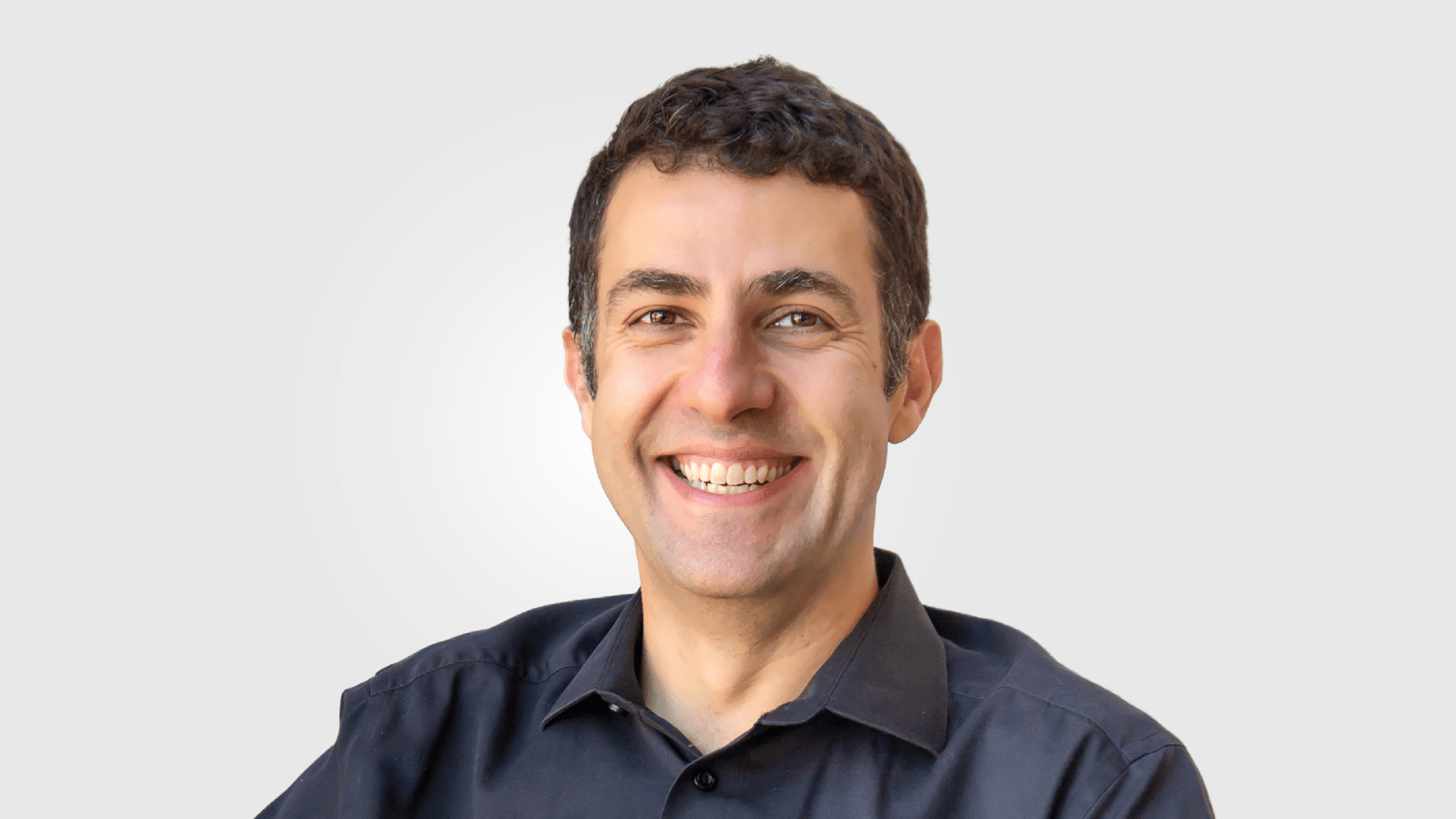
Our team is continuing to grow! Joseph Bou-Younes recently joined us as our Head of Product, based in Waterloo. He comes with a wealth of product management and leadership experience and has long-standing collaborations in the Waterloo ecosystem from his time at Communitech.
At RBC Borealis, we believe that the value of ML research emerges when it is engineered into beautiful products that have a positive impact on the world. Joseph started his career in financial software at Spectra Securities Software (now part of FIS) and then led product groups at Yahoo in the U.S. and 500px in Toronto.
Our teams at RBC Borealis are thrilled to be welcoming him on board.
Why did you join RBC Borealis?
I wanted an opportunity to leverage my experience and passion for tech and machine learning specifically to build something big that benefits Canada. I had just spent three years working for Communitech, a not-for-profit, helping startups, scale-ups and large organizations learn how to use data to drive innovation. It was time to get back in the game. Through the vision of Dave McKay and Foteini, and with the hard work of an amazing team, RBC Borealis had built a world-class, integrated team of AI researchers and engineers. It had a huge, friendly market in RBC with over 86,000 employees serving 16 million clients in 35 countries – the scale to drive real impact. It was a once-in-a-lifetime chance.
Why did it make sense for RBC Borealis to hire you as Head of Product in Waterloo?
We’re a distributed organization; our leadership is spread across Vancouver, Edmonton, Waterloo, Toronto, and Montreal. This is critical not only to our ability to recruit, but also to our ability to make an impact across Canada. We try to be very intentional in how we communicate so that we can work well despite the distance.
As we accelerate our work on applications it’s critical that we have access to amazing engineering, product and design talent to complement our great research team. Waterloo is an amazing tech ecosystem, with a strong history of revolutionary products based on deep tech — BlackBerry, Open Text, Sandvine, Miovision and so on. Everyone forgets how technically challenging BlackBerry was. Those technical and business skills, that passion for deep tech, is very real and makes Waterloo unique.
And, of course, we train the best software developers in the world, which you need to apply ML at scale. I can see them walking to Davis Centre from my desk. So that’s why RBC Borealis and RBC continue to bet on Waterloo.
What excites you the most about this job?
First, the opportunity: the financial system is the plumbing of the global economy. It’s this foundational thing that changes very rapidly and has huge impact. Everywhere I look there are problems to solve and opportunities to unlock. I’m convinced that AI will revolutionize large areas of human endeavour very soon and a bank is a great place to be able to observe and effect that. So we’re in a problem-rich environment with lots of long levers to pull.
And second, the team. With our roots in research, we have incredible capacity in ML. I’ve had to suspend my disbelief and take a wide view as to what we can/can’t do with AI. Dr. Simon Prince, one of our directors of research, put it best in my first week; “you bring us the user problem, the business opportunity, and let us figure out if or how AI can solve it.” AI cannot, yet, do anything a human can, but my starting point is to assume that it can, and then to let the research and engineering teams help us understand any constraints, and move beyond them.
What’s different about building products at RBC Borealis?
This is something that we’ve been wrestling with. Machine learning is still an immature field; capabilities are changing so fast that it’s sometimes hard to separate the impossible from the very hard. User research is difficult to do without real results and real screens. Most times, when you’re building an app or website you can get useful user feedback just by walking them through static mockups or a prototype. With a machine learning problem, the performance of the underlying algorithm is hugely important to the overall experience.
It’s also hard to turn a business problem into a machine learning problem. Doing so takes skill, and requires that you slice the business problem from multiple directions. You need to understand what training data, simulation environments, or other signal is available. You also need to work with very smart people from very different disciplines with different temperaments and perspectives towards a common goal.
And finally, we’re a product organization that’s been built around a world-class research team. To earn our keep we need to be finding problems and applications of ML that move us towards unsolved problems. We’ve got to keep chasing huge business opportunities with an element of scientific risk.
What are your goals for the next year?
To build a world-class product culture in RBC Borealis, and to ship products that make people stop and say wow. We have the potential to develop and deploy some amazing, transformative technology that creates a big impact and I want to get us there, and quickly.
News
RBC Borealis opens doors to Waterloo office and pledges support for Communitech’s Leaders Prize
News
Xiaodan Zhu on several deep learning models for reasoning in natural language
News